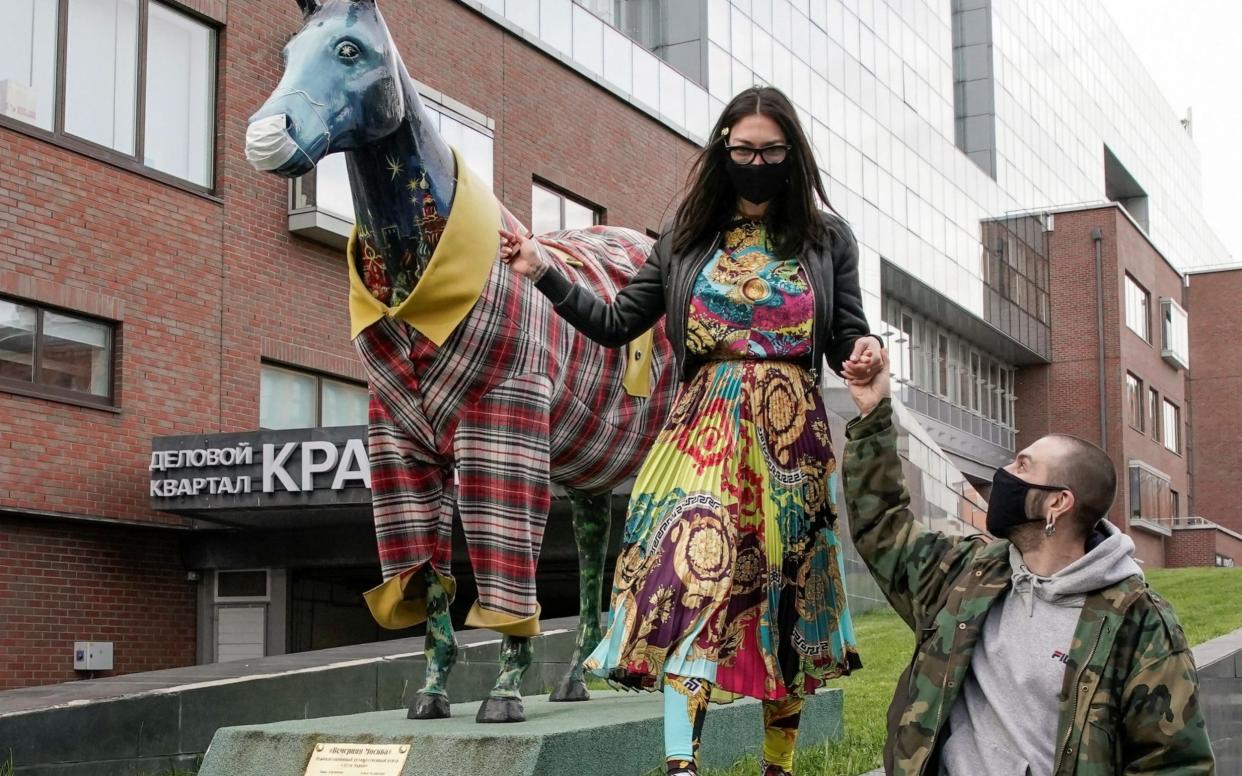'Orwell is rolling in his grave': Anger and disbelief at strict new lockdown rules in Moscow

The Moscow City Hall on Wednesday promised to re-open parks and finally allow walks after nine weeks of coronavirus lockdown but the incredibly strict rules regulating outdoor activities have been met with universal derision.
Sergei Sobyanin, the Moscow mayor, announced something that could be a cause for celebration on Wednesday, telling Vladimir Putin, the president, in a televised conference call that the Russian capital was poised to begin lifting some of the lockdown restrictions.
The number of new Covid-19 cases recorded in Moscow on Thursday, was just over 2,000, the lowest in five weeks, and the number of hospitalisations dropped by 40 per cent in a fortnight, according to the mayor.
Most of Moscow’s shops and parks will re-open on Monday, and walks and outdoor exercises will finally be allowed but with a caveat.
The details of what the City Hall dubbed an “experiment” have angered even the mayor’s supporters who have credited him for stemming the outbreak.
Each apartment building will be assigned three days a week when residents will be allowed to venture outside but only between 9 am and 9 pm, exercising will be permitted only before 9 am, and face masks will be mandatory.

People have also been advised to carry IDs and documents proving their place of residence in case they get stopped by police.
The “regime of walks” as the City Hall has described it has triggered a wave of anger and derision.
“Moscow, 2020: A schedule for walking out people in muzzles. Orwell is rolling in his grave from envy,” political analyst Alexander Kynev wrote on Facebook.
Formally no walks have been allowed in the city of 12 million, and authorities even introduced digital passes for those wanting to drive their car or take public transport.
As the initial fear of infection died down and the spread of the disease began to decline, Moscow streets and boulevards got filled up with people who go out on runs and walks, mostly respecting social distancing.
Mr Sobyanin on Wednesday did not scrap the digital passes despite calls from senior Russian officials who suggested that the permits have grown largely meaningless as car traffic has returned to about half of its usual levels.
“It’s going to be tough to explain to kids that “1984” is a dystopian novel: a) there was no schedule for walks there; b) you didn’t get fined if you’re caught in the street without a permit,” Andrei Konyaev, who publishes a science journal, tweeted.
Mr Sobyanin’s Twitter feed has been flooded with hundreds of angry comments, accusing him of humiliating people.
Social media was flooded with memes, comparing the new rules to a Gulag prison camp or life in the areas of the Soviet Union under Nazi occupation.
One of the most popular memes with the title “History repeats itself” juxtaposed a black-and-white picture of a Russian peasant woman stopped by a Nazi soldier and a modern-day photo of a woman stopped by police officers in a Moscow street.
As is often the case with Russian laws, there is little expectation that Muscovites will be following the rules which have been generally described as unenforceable.
“Sobyanin has confirmed that he wants to pretend that he is in control while we, in his opinion, should pretend that we are obeying him,” Oleg Stepanov, an ally of opposition politician Alexei Navalny, wrote in his blog.


